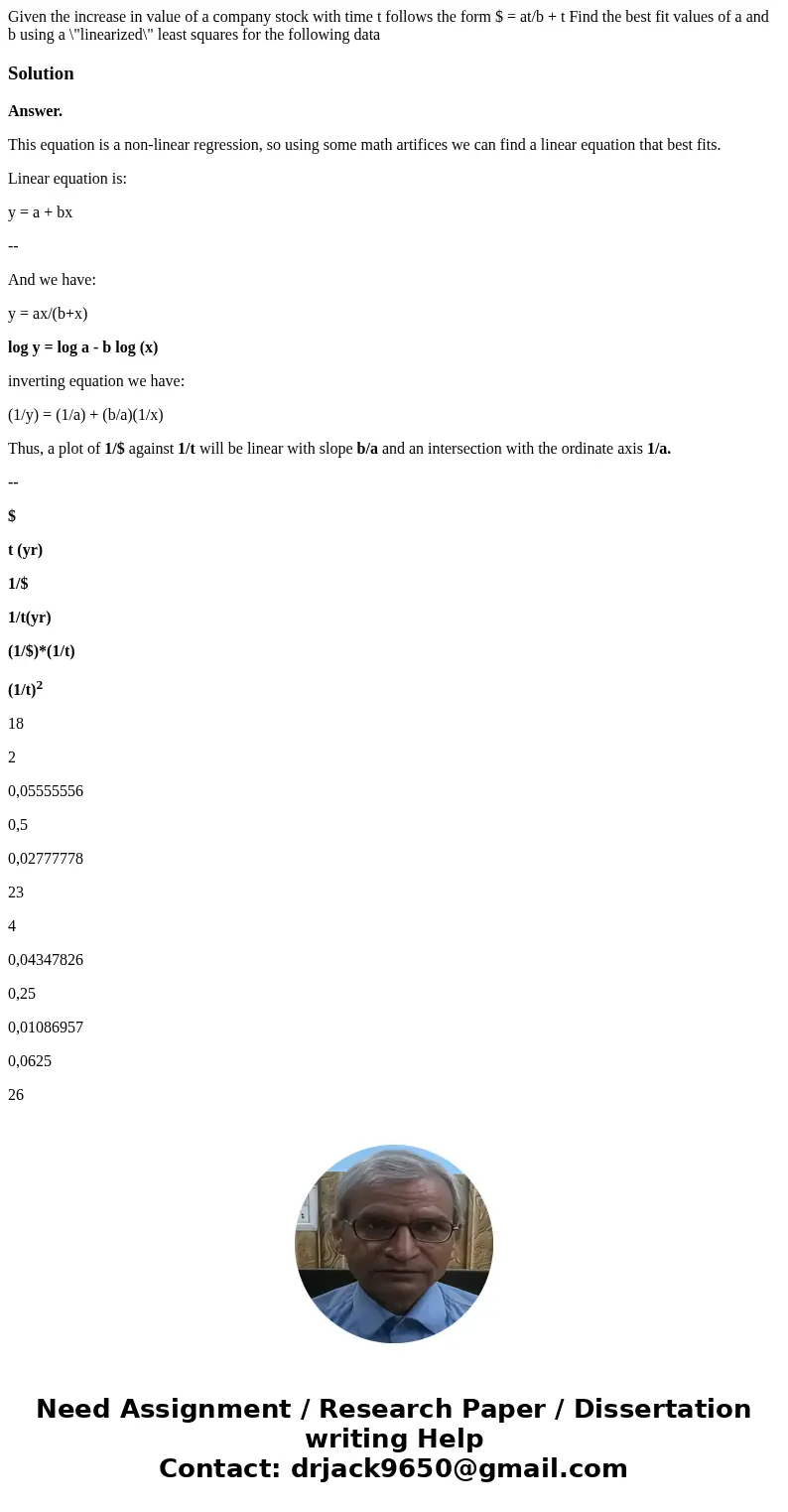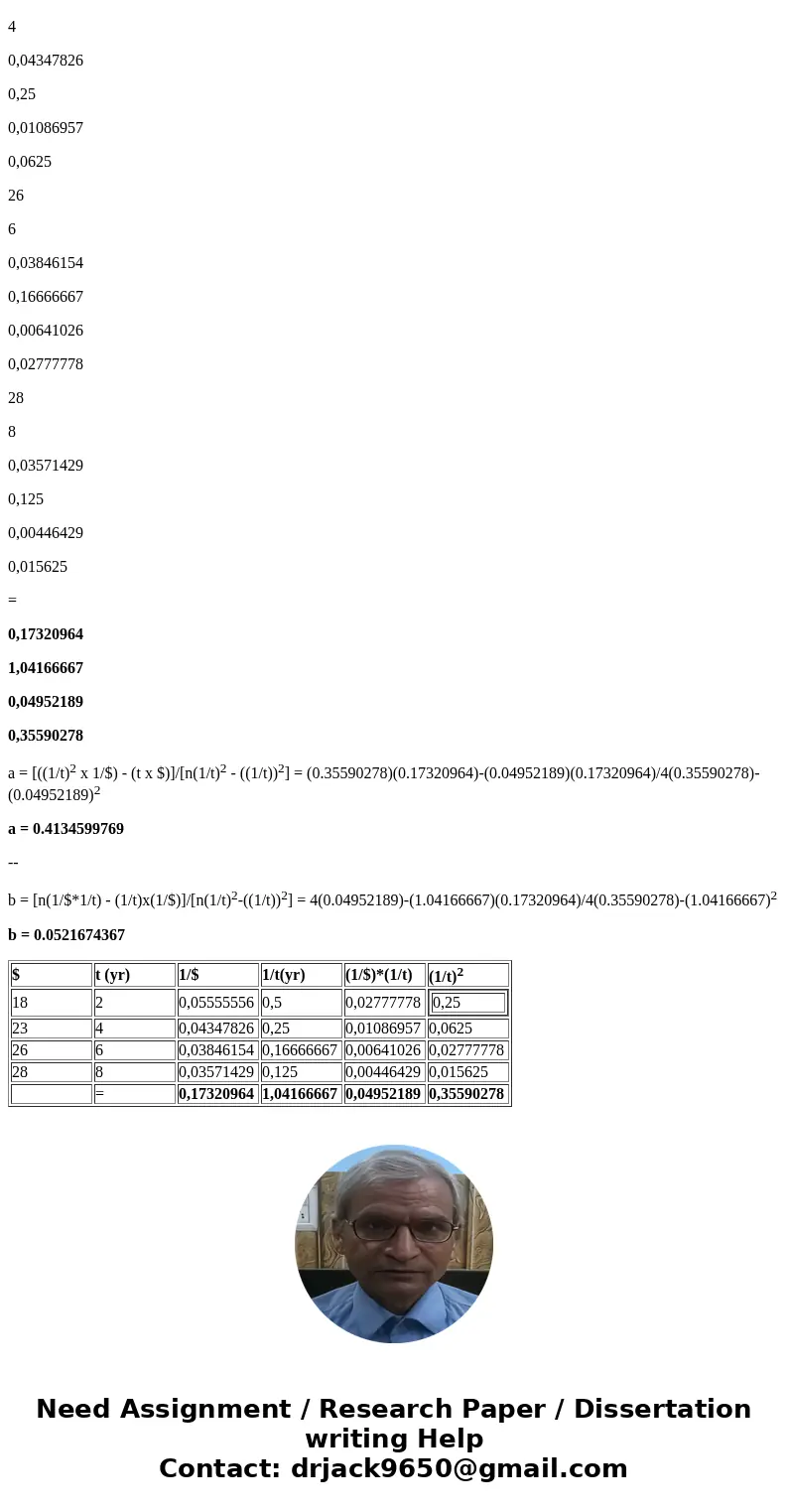Given the increase in value of a company stock with time t f
Solution
Answer.
This equation is a non-linear regression, so using some math artifices we can find a linear equation that best fits.
Linear equation is:
y = a + bx
--
And we have:
y = ax/(b+x)
log y = log a - b log (x)
inverting equation we have:
(1/y) = (1/a) + (b/a)(1/x)
Thus, a plot of 1/$ against 1/t will be linear with slope b/a and an intersection with the ordinate axis 1/a.
--
$
t (yr)
1/$
1/t(yr)
(1/$)*(1/t)
(1/t)2
18
2
0,05555556
0,5
0,02777778
23
4
0,04347826
0,25
0,01086957
0,0625
26
6
0,03846154
0,16666667
0,00641026
0,02777778
28
8
0,03571429
0,125
0,00446429
0,015625
=
0,17320964
1,04166667
0,04952189
0,35590278
a = [((1/t)2 x 1/$) - (t x $)]/[n(1/t)2 - ((1/t))2] = (0.35590278)(0.17320964)-(0.04952189)(0.17320964)/4(0.35590278)-(0.04952189)2
a = 0.4134599769
--
b = [n(1/$*1/t) - (1/t)x(1/$)]/[n(1/t)2-((1/t))2] = 4(0.04952189)-(1.04166667)(0.17320964)/4(0.35590278)-(1.04166667)2
b = 0.0521674367
| $ | t (yr) | 1/$ | 1/t(yr) | (1/$)*(1/t) | (1/t)2 | |
| 18 | 2 | 0,05555556 | 0,5 | 0,02777778 |
| |
| 23 | 4 | 0,04347826 | 0,25 | 0,01086957 | 0,0625 | |
| 26 | 6 | 0,03846154 | 0,16666667 | 0,00641026 | 0,02777778 | |
| 28 | 8 | 0,03571429 | 0,125 | 0,00446429 | 0,015625 | |
| = | 0,17320964 | 1,04166667 | 0,04952189 | 0,35590278 |


 Homework Sourse
Homework Sourse